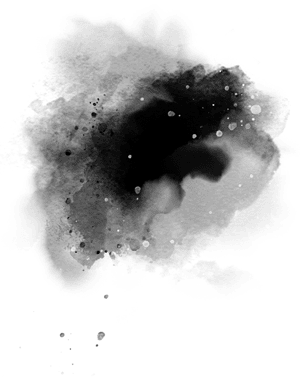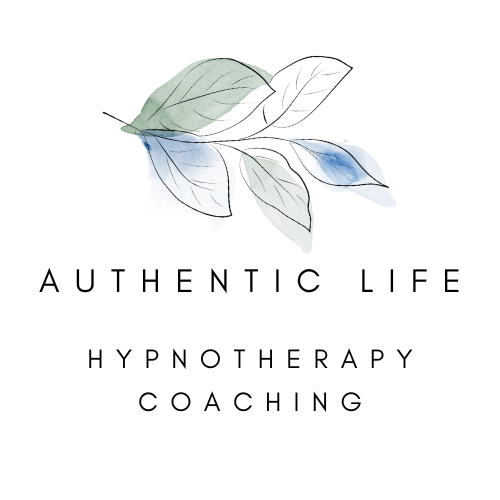
Blog
Reclaim your authenticity
Authenticity is the Big Kahuna.
It’s the key to personal freedom. Being at ease in your thoughts and deeds. Raw, searing, daring honesty. Knowing and exhibiting the very essence of who and what you are. It’s choosing the direction you’re heading and the meaning behind the movement. It’s questioning yourself. Abandoning normality and surrendering to uncertainty. Letting go. Holding and containing your courage. Exercising choice, knowing it might come to nothing. Faith. The screaming, breathtaking, awe-inspiring reality of being alive.
Authenticity is communion with the quiet voice at the back of your mind that you feel the urge to edit. It’s doubt. Anger. Fear. Vulnerability. Speaking up. Checking in. Saying, “I got this.” It’s big fat ugly mistakes. Not needing to prove yourself. Respecting boundaries – yours and others. Owning the experience. Love. Gratitude. Humility. Awe. Kindness. Responsibility. Moderation. Fallibility. Unity.
Authenticity is holding the darkest part of your soul and cradling it like you might a bewildered child. Loving yourself like no one else possibly could. Living with passion. Acceptance. Regret. The unfathomable, eternal truth that ever was. Everything and nothing. Yin and Yang. Black and white. Right and wrong. Sacred, fragile, delicate, treasured: the Big Kahuna.
And normality is killing us.
Expectations suffocate our joy and cripple our creativity. Society chains us, and we struggle, becoming irritable and defensive. Our bodies suffer, stressed, and we cope by trying to soothe the forbidden parts of the self.
Trauma compounds our self-disconnection. When triggered by anything even vaguely resembling a sensitive event, trauma shows up in automatic actions, sensations and thoughts. It splits us from our gut feelings and hardens us. We lose connection with everything around us and are plagued by all-or-nothing thinking.
Trauma builds shame. It makes us argumentative and inflexible, demanding that we hide our flaws and prove our rightness. We repress our anger and frustrations for fear they might engulf us. And in the maelstrom, we crave distraction to avoid the gaping hole at the heart of our collective civilisation.
Authenticity is the antithesis of disconnection and repression. It is pure expression.
When we are being authentic, we hold ourselves, no matter our emotions. We can feel, fully. We can make room for humanity, trust and cooperation in spite of the reality of our lived experiences. Our mind, spirit, body and surroundings are one. We are sufficient and have no need to prove or show off. We can observe and reflect without the need to react. We can embrace a looser definition of the nature of existence and accept our place and limitations within that unity. We can celebrate.
Authenticity is being at home in your skin and humbly remembering what it is to be you. We are each an entity, a multitude and a process, communicating and interlacing with everything that surrounds us.
When we deny our nature, we turn away from ourselves and suffer. To hem ourselves in under the weight of our cultural environment is to imbalance our entire organism with stress. Our genetic potentials express themselves within this framework; we have a name for it: psychoneuroimmunoendocrinology. And the results are all around us: Chronic illness. Inflammation. Hypertension. IBS. Autoimmune reactions. Raised blood pressure. Depression. Arthritis. Addictions.
Attachment vs Authenticity
How did we end up in such a state? When did it become normal to become a casualty of culture?
The problem is, ‘this’ all feels like us. We grow up surrounded by our environment with its context, expectations, and assumptions, and we barely notice. Gradually, we find ways to thrive in our environment, hanging on to the actions and attitudes that work best for us. We build them into our personality. And where cultural, societal and parental expectations produce a tension between our needs to please ourselves and our needs to please those who protect us, attachment usually wins.
What is the inevitable result when parents, caregivers, or authority figures transmit a message that certain actions are acceptable while others are not? Pleasing the parent becomes necessary to obtain our essential love and survival needs. We make a pact against our dark side, hide our feelings and desires, but remain safe and looked after. We have no choice in the matter: at a time in our life when we are totally vulnerable and unable to look after ourselves, we understand what the world needs us to do to survive, so we do it.
The need for closeness is mandatory for an infant, essential throughout all the developmental stages of childhood, and the number one determinant of health in adults. And so, our earliest attachment relationships and the coping mechanisms we create build the template for how we approach all future significant relationships. We have no agency to stop it; by the time we become aware, it has already occurred.
Life brings about a continuous tussle between authenticity and attachment. It begins with our first thoughts, extends through this moment as you read my words, and stretches into the distance. Inauthenticity – the denial or alienation of unapproved parts of the self – is the result of a set of coping mechanisms that we learn and reinforce so repeatedly that we come to think they are part of our personality. In fact, they disconnect us from the self. Many of the personality traits that we come to believe are us actually bear the scars of those chance moments when we lost connection to ourselves. What we think is a badge of honour or a source of pride eventually encases us in a straitjacket as we face the need to be consistent with ourselves.
The mechanisms might show up in any manner of socially admired and incentivised (but exaggerated) traits: a compulsive concern for the emotional needs of others; a rigid identification with role and duty; a need to exaggerate our significance and to hyper-multitask until burnout; the repression of anger; or perhaps perfectionism so as to never disappoint anyone. They are all elements of the mask of inauthenticity: psychic adaptations formed to preserve something essential and non-negotiable. And that is where the quiet voice at the back of your mind comes in, the one we often feel the urge to edit. You might call it the subconscious, the soul or the inner child, but to me, it is the quiet, ever-truthful voice of authenticity rebelling against the mask of learned inauthenticity.
Our beliefs, assumptions and expectations define our experiences and choices. Whom we take ourselves to be, and our views of how the world operates, dictate how we shape our lives. We adapt based on that worldview and the stories we tell ourselves, defining our essential nature by our actions. In truth, we are potential, swayed by the winds and rocked by the waves of a powerfully influential environment. Under certain conditions, our potentials manifest, but where the environment is not supportive, growth is stunted, just like a sapling. Our ability to adapt becomes a blessing and a curse. Where attachment, kindness, safety, permission to play and unconditional regard exist, we thrive; when permission to feel and express our whole range of emotions is denied, we adapt. We become anxious to limit our emotions and ensure acceptance. The routes that our parents, society, peer group and culture judge as permissible or admirable will define the initial boundary of adaptations from which we choose.
Maturation becomes stuck when the energy of a forbidden emotion is banished to a locked drawer of the mind: no emotional vulnerability, no growth. Worse, a lack of emotional vulnerability creates a sense of emptiness that drags in whatever it can find to fill the vacuum: distractions, compulsions, and noise. Shopping. Eating. Over-Work. Hyper-materialism. Addictions. Whatever works for you, but ideally, a culturally acceptable vice that rewards the empty void of inauthenticity and earns a pat on the back from society. We passively consume, distract or deny to soothe a painful, culturally massive predicament. No wonder advertising, social conditioning and propaganda work so well.
Man is a social beast, and we take our cues from society. Even armed with an awareness of the origins of our mask of inauthenticity, it takes a brave soul to step outside that which is all around us and assumed to be normal. When our lives reflect the needs and judgements of culture and our family systems, the chains of guilt, shame, and economic necessity can remain stubbornly tight. But there is no culpability where there is/was no choice. We did not choose inauthenticity – it grew from our need to survive – and today, we can choose differently.
So who can point to a single value they hold that is genuinely and absolutely their own? The roots of midlife existential crisis or chronic illness can begin here, in a search for meaning. But with a will and a kind curiosity, we can introspect; what Socrates called the examined life. It doesn’t have to be a self-induced catastrophe to point to the elements of life that are a sham: ask not why the adaptations but why the pain. Ask what is at the heart of true nature, what it would be to experience yourself wholly, and what stands in the way. The result may feel like remembering and retrieving lost parts of yourself. Authenticity is not a destination; it’s a process of opening yourself up to examination and simply being truthful. I doubt anyone can become 100% authentic since we are such social beasts, but we can examine where we sit on the spectrum, make a choice and take ownership of that. It’s empowering to decide never to be complicit in your own deceit again.
In publishing this, I find myself with a helpful example: my words are strong, full of emotion and passion. They feel intrinsically right. When I write like this, it feels like I’m on track. But a part of me questions whether I have the right or the expertise to potentially influence you, reader. I question my motivations and credentials. Who am I to pontificate upon what someone else might be going through? How could I possibly know? And am I not, even if with the best of intentions, adding to the weight of cultural pressure in so doing? Am I not contributing to the inauthenticity I rebel against, just by shining a light on the subject? The answer, as in many things, is yes and no. But, as Walt Whitman aptly said, “Do I contradict myself? Very well, then I contradict myself. I am large, I contain multitudes.”
Perhaps this is authenticity.

Recent Comments